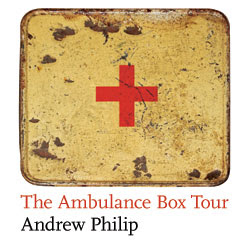Wednesday, June 21, 2006
You need to know more
Posted by
Andrew Philip
at
5:37 pm
2
comments
![]()
Labels: blogs
Friday, June 09, 2006
A Public Confession
The venue, Edinburgh's Fruitmarket Gallery, was jam packed with figures from the Scottish literatary world--I caught a glimpse of Alastair Reid at one point--media men and women and high heid yins of Scotland's arts bodies. Everybody was melting, so they opened the glass front of the gallery. It made little difference to the temperature in the depths of the throng, but the party spilled out on to the street.
Posted by
Andrew Philip
at
12:47 pm
0
comments
![]()
Labels: readings, Scottish writers, Scottish writing
Thursday, June 08, 2006
The Book Trade Goes to the Dog
Posted by
Andrew Philip
at
1:00 pm
1 comments
![]()
Labels: publishing
Thursday, June 01, 2006
Wigtown Booktown Ghosttown
We were in Wigtown a week past Saturday. Came away with a nice wee haul of second-hand books, including John Berryman's Collected Poems 1937-1971 (doesn't include the Dream Songs, which I really want to get my teeth into at some point) and Octavio Paz's bilingual Collected Poems 1957-1987 edited by the translator and wonderful essayist Eliot Weinberger.
Wigtown, I have to say, felt rather dead. Maybe everyone was just away at Hay, but it wasn't necessarily due to a lack of people even though there appeared to be no bustle about the place; it seemed like something deeper. Interestingly, Whithorn, which has a similar proportion of boarded-up buildings and had a similar number of people on the streets, didn't share the aura of malaise. Maybe it's because Wigtown is so blatantly branded and Whithorn is more just itself.
Still, it's a beautiful and fascinating part of the country and I'm pleased with me books.
Posted by
Andrew Philip
at
1:37 pm
0
comments
![]()

.jpg)





